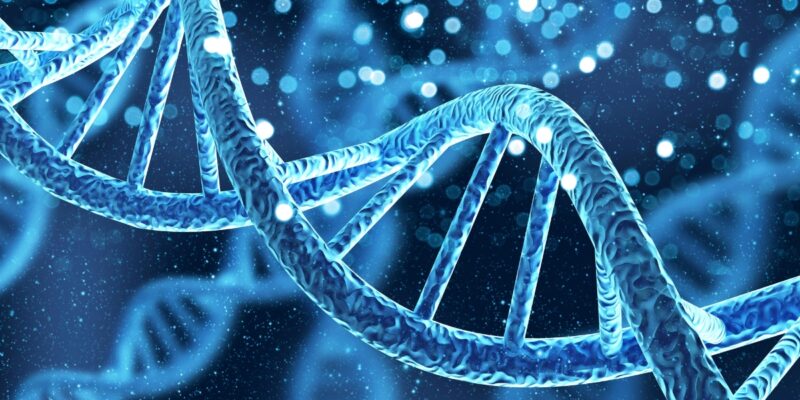
PGS (PGT-A)/PGD(PGT-M)
We collaborate with the best embryological laboratories in Athens, for PGS/PGD. Embryological staff is highly experienced and they can deal with almost all known genetic conditions. Cost for PGT-A and PGT-M in Greece, is highly competitive in comparison to the rest of Europe and the U.S.
Laboratory equipment and techniques used though, are equally sufficient. PGT-A If desired, can also be used for screening of a donor in egg donation process. Sex selection in Greece for family balancing is not allowed.
Chromosomes on blue background, scientific concept 3d illustration

FAQ
Difference between PGS and PGD
Pre-implantation genetic diagnosis involves screening single cells from embryos for genetic diseases and chromosomal disorders. The testing is performed by sampling embryos, according to a special embryo biopsy technique – prior to embryo transfer and during IVF. The goal is to identify abnormal embryos and avoid transferring them.
PGT-M can identify single gene disorders, like cystic fibrosis, myotonic dystrophy, thalassemia, fragile X and chromosome abnormalities.
PGT-A applies the technology to screen embryos for aneuploidy. The goal is to identify and eliminate chromosomally abnormal embryos, leaving only normal embryos to be transferred in the attempt to achieve a successful pregnancy.
PGT-A is usually recommended in advanced maternal age, where the chromosomally abnormal embryo rate is increased, as well as in recurrent miscarriages and recurrent failure of implantation in IVF.
In PGT-M we already know there is a potential for abnormality and we screen embryos in order to ensure it won’t be transferred into the implanted embryo. Whereas in PGT-A we are unaware of a particular abnormality and we screen for chromosomal age-related problems.
Indications of PGS
Repeated implantation failure
Recurrent pregnancy loss
Severe male infertility
Previous trisomic conception
Our cooperating IVF centres offer PGT-A to egg donors if requested.
Also PGT-SR can be used when one of the parents carries balanced translocation in their chromosomes, in order not to pass them on to the offspring.
Day 3 or Day 5 Biopsy?
Three days after embryo formation most of them are comprised of 8 cells. When we biopsy an embryo on Day 3 we just remove 1 cell. The advantage of this is that genetic analysis results will be ready for fresh embryo transfer on Day 5. Traditionally fresh embryo transfers are thought to be more successful. Also if freezing is needed, there is an increased cost for a frozen embryo cycle. Waiting for another month can also be psychologically stressful.
On the other hand, because only one cell is removed during the procedure, the results could inaccurately represent the rest of the embryo. The false positive for chromosomal abnormalities rate on Day 3 is bigger. Some research shows that a biopsy on Day 3 is more traumatic or damaging to the embryo than Day 5 biopsy.
On Day 5 most embryos are comprised of more than 100 cells. So a biopsy at this point includes usually 10-15 cells. This means that theoretically results are more accurate. Also mosaic rate is reduced and Day 5 embryo is potentially more resilient to the biopsy than the Day 3 embryo.
The disadvantage here is that because of the technical nature of the DNA analysis, it usually takes about 24 hours to have the results back. Because it has been found that Day 6 fresh embryo transfer has reduced chances of success, we do prefer to freeze and transfer healthy embryos in a frozen cycle. Ultimately, the decision should be made on each patient’s individual situation and needs.
At Pelargos IVF we do prefer a Day 5 biopsy. This is because we highly trust the vitrification freezing technology at all our cooperating centres where PGS is performed. We have noted that our frozen cycle success rates are equal or even better than the fresh cycle rates.
Day 3 biopsy on the other hand can have advantages in young women, who expectedly have lots of Day 3 embryos and fly to Greece from far away, making a second trip for the frozen cycle not easy.
The cost of PGT-A depends on the embryos biopsied and we do always have more embryos on Day 3 than Day 5. On the other hand, we need to take into consideration the increased cost for a frozen cycle.
Embryologic staff at the centre where IVF takes place offer our patients a thorough consultation after they book treatment with Pelargos.
Why have PGS at Pelargos?
Cooperating laboratories with certified and highly experienced embryologists performing biopsies
Cooperating labs with incredibly high blastocyst culture rates
Top vitrification facilities. Results of frozen cycles equal or better than fresh
Really competitive total cost
Cooperating genetic analysis laboratories extremely experienced and certified
Combination of the above offers extremely high success rates
Can PGS identify sex? Can it be used for sex selection?
Yes PGT-A can identify sex. But sex selection in Greece is legal only for serious medical conditions. Sex selection for social reasons is not allowed. Sex selection for family balancing is allowed in some parts of the world like Northern Cyprus. Contact us for referral.
Do not hesitate to contact us for any sort of information you may need regarding PGT-A /PGT-M/PGT-SR. Our lead consultant can offer a full consultation.
